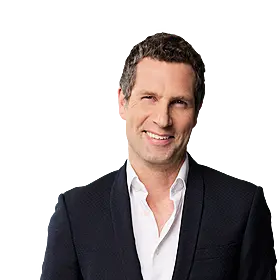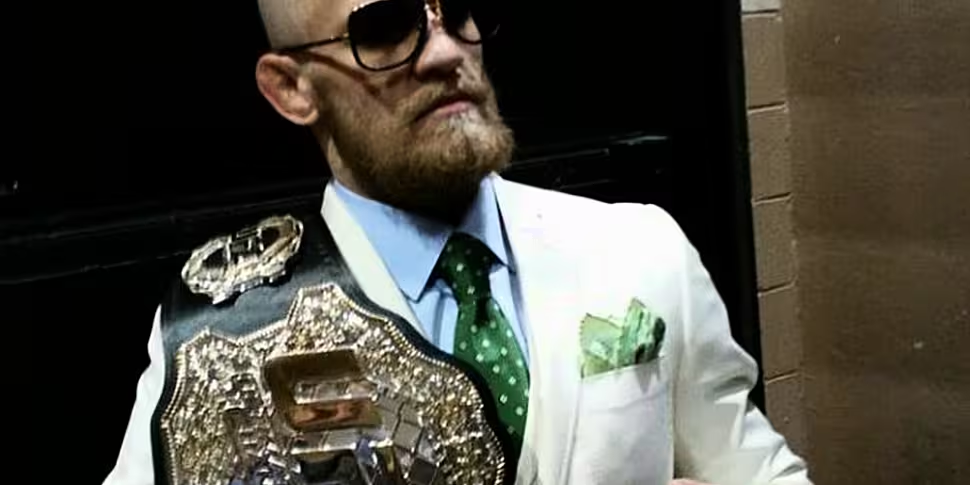From initial success as a niche extreme sport - to a global organisation that is currently exploring the possibility of hosting a future event in Croke Park - the Ultimate Fighting Championship (UFC) has come a long way in just over 20 years.
In 2011 The New York Times labelled the meteoric rise of the company "one of the greatest feats of financial alchemy in the history of sports", and it's only gotten bigger since then.
The first ever Ultimate Fighting Championship event took place in November 1993. There were no judges, no weight classes, and the rules didn't go much further than, 'no biting, no eye gouging'. The opening fight pitted a 415-pound sumo wrestler against a lean Dutch kick-boxer - who duly caught him with a kick to the face moments into the competition - bursting open the area around his eye and knocking out three teeth.
The announcer described the fighters as "street tough warriors" and warned the audience that "anything can happen - and probably will".
It was sold as a freak show. 'Cage fighters' appeared in the garb of their base discipline with some taking to the octagon in karate outfits, others with boxing gloves.
This is the product, and promotion, that failed to get licences to hold events in major US states - and that nearly went bankrupt by the time that Dana White convinced his childhood friends, the Fertitta brothers, Frank III and Lorenzo (heirs to a Las Vegas casino empire) to buy the struggling franchise for $2m in 2001.
They loved the idea of the discipline - but hated how it was being marketed. Mr White went from working as a trainer and a bouncer, to being president of the UFC - and he started to rebuild the organisation.
The UFC faced two immediate problems - a major image issue that they inherited from the previous owners - and a lack of any media attention to breathe life into the product.
Once ownership was transferred to the Fertitta brothers, a few basic rule changes were made - like the introduction of weight classes and the banning of head butts and 'fish-hooking'. When entering new regions, the organisation still has to defend the safety record of the UFC, and the legitimacy of the sport. It is also still banned in a number of US states, including New York.
On the media front they started meeting with cable TV stations - but no one would entertain the idea of taking the product - Lorenzo Fertitta says that it would have been easier to sell them pornography than the UFC.
“It was nuts. I mean this is a free society. They’d put porn on the air but not us,” he told the NYT.
When it did eventually return as a pay-per-view TV product, the uptake was poor - Dana White estimates that $50m was invested in the UFC before it started to turn around.
The company regained a foothold when it tapped into the early noughties reality TV zeitgeist. It made its own self-financed reality TV series The Ultimate Fighter. The concept of the show is straightforward - a group of fighters live together, and fight week-by-week, with the losers being eliminated - and the eventual winner being given a UFC contract.
Being able to build a narrative around the fights, and capturing the fly-on-the-wall footage of fighters playing pranks on each other, or falling out in the house - the show aired on Spike in 2005 and was an immediate hit.
Working from that TV platform they got out of the red - and started to make headway in the pay-per-view market. One million plus paid to watch a live event in late 2006.
By 2010 it had made a deal with Fox that was reported to be worth $100m a year - and since then it has been consolidating its position, continuing to fight to be recognised as a mainstream, legitimate sport.
While the company is tight with key numbers - the franchise is reported to be worth in excess of $3.5bn.
After its initial struggle to get traction in the media - the UFC has never lost sight of itself as a media product. While detractors compare the sport to the WWE - Lorenzo Fertitta has openly said that the company took cues from the organisation, particularly the need to install narratives around fights to entertain, and draw in audiences.
It also shared the pro-wrestling company's mix of free and paid-for TV content.
As the UFC has come of age, it has taken advantage of changes in technology to grow and engage its audience. It started off by getting rappers, NFL players and pop-stars to tweet about big fights - and evolved to streaming the early fights on cards on Facebook - then the later ones on cable TV - and the final fights on pay-per-view.
Now it has effectively become its own media organisation, by exploiting the explosion of online video. The UFC's official YouTube channel's most viewed video has more than 25.5m hits.
On the week of big fight cards, it follows fighters for its own 'Embedded' series - building narratives around the fights in the same way that Ultimate Fighter did. These videos often surpass 300,000 views, adding a digital media wing to the company - while also hyping the fights.
While all sports broadcasters will build narratives around competitions, its hard to think of one that does it more effectively than the UFC - that's why fighters like 'notorious' Conor McGregor are so important to the organisation.
During his post-fight press conference in Boston, the Irish fighter seemed fatigued - not from the bout - but from the monumental promotional push that he put in during the week leading up to the fight.
While detractors undermine the UFC's sporting credentials or cite drug scandals in the organisation - and it has bought-up rival organisations to the point where it has been accused of establishing a monopoly - it's hard not to be impressed with what Dana White and the Fertitta brothers have achieved for the brand over the last 14 years.









